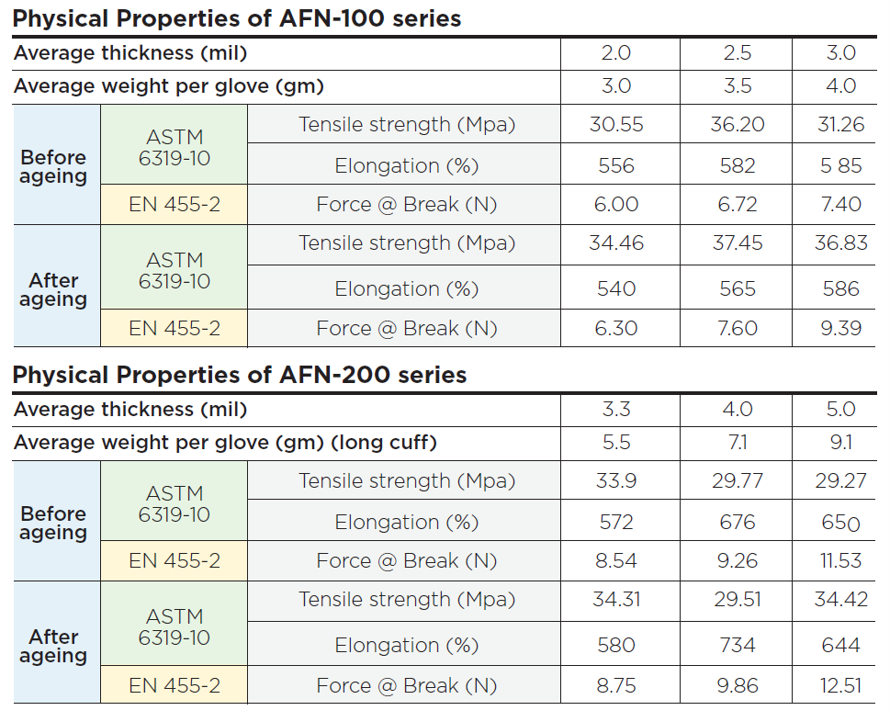Chasing the sunset
June 13, 2021Amidst Impending Viral Variants, Are Our Disinfectants and Hand Sanitizers Still Effective?
September 8, 202113 June 2021
Aside from avoiding allergic responses to latex proteins, nitrile butadiene rubber (NBR) gloves feature excellent chemical- and puncture-resistance, providing high levels of protection and durability. Understandably, NBR gloves are becoming increasingly popular amongst healthcare workers, who constantly face the threat of communicable diseases and hazardous chemicals present in various healthcare settings. The recent COVID-19 pandemic propelled the need for nitrile gloves to historic highs, causing glove manufacturers to scramble to meet the spike in global demand. However, the use of NBR gloves can result in Type IV hypersensitivity, which can in turn lead to a debilitating medical condition known as allergic contact dermatitis (ACD). The occurrence of ACD in NBR glove users has been attributed to the presence of chemical accelerators such as thiurams, carbamates and thiazoles that hasten the cross-linking of sulfur in conventional nitrile gloves. Given the increasingly widespread and prolonged use of NBR gloves by healthcare workers amid the unceasing COVID-19 pandemic, it is timely and perhaps obligatory for more glove manufacturers to offer accelerator-free options in their product line-up.
While a number of patents in the early 2000’s have proposed methods to cross-link carboxylated NBR, adoption by glove manufacturers around the world has been relatively slow. Matching the physical properties, chemical resistance and durability of accelerator-enabled, sulfur cross-linked NBR gloves is no easy feat. For one, a delicate balance must be struck between the ionic and covalent bonds formed with available functional groups on the polybutadiene backbone. The accelerator-free solution should also allow for a wide range of glove thicknesses without compromising on glove performance. Finally, the benefits of being accelerator-free should not come at an inordinate increase in production cost. These demanding requirements have undoubtedly erected a formidable barrier to accelerator-free NBR glove production.
The people at Budget Champ Sdn Bhd (BCSB) and its sister company Cosmic Polymer Sdn Bhd (CPSB) believe that the transition to accelerator-free glove production should be as seamless as possible, and have painstakingly developed a comprehensive set of solutions that meet the exacting requirements stated above. For instance, CPSB’s AFN-100 and AFN-200 series of products are composites that provide the necessary ingredients needed for the compounding of accelerator-free NBR.
In particular, the AFN-100 series of products are water soluble liquids that avoid the occurrence of sedimentation often encountered during NBR production. They are specifically tailored for the manufacture of thin NBR gloves, typically about 0.05 – 0.08 mm in thickness. The gloves produced are stain-free with good physical properties, chemical resistance and durability of use.
The AFN-200 series of products are highly stable aqueous dispersions with long pot-life in nitrile latex for prolonged, continuous dip operations. They are specially formulated for the manufacture of thicker NBR gloves, typically larger than 0.08 mm in thickness. The gloves produced are stain-free and feature a soft comfortable feel. They possess excellent physical properties, chemical resistance and durability of use.
The tables below illustrate the physical properties of gloves produced by the AFN-100 and AFN-200 series of products under actual factory production line conditions.

Given that these accelerator-free composites were developed in-house, CPSB can readily customize their specifications to suit the unique requirements of each glove manufacturer. These composites work perfectly with BCSB’s Flexicoat series (polymer coating for powder-free gloves), CTF series (powder-free anti-tack) and NRL/IOR series (alkaline/acid former cleaner). Beyond just supplying the chemical products that go into each stage of the entire glove manufacturing process, experts from BCSB and CPSB also provide the close technical assistance on how these products can best be used in the production line to achieve optimal results. Let CPSB and BCSB accelerate your journey towards an accelerator-free future for rubber gloves.
